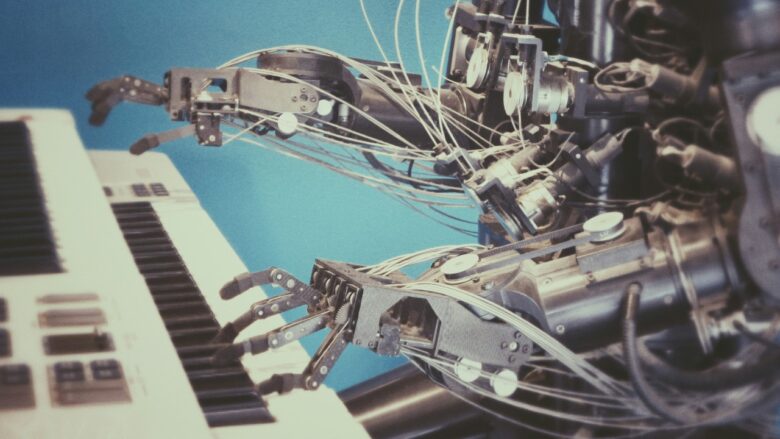Technology has revolutionized music production, opening up new tools and genres. Furthermore, technology makes promoting their music easier so as to connect with fans more directly. Music’s top technological innovations include Digital Audio Workstations (DAWs), Auto-Tune, and streaming services; other innovations have included virtual and augmented reality technologies.
1. Streaming
Streaming services have revolutionized how we consume music by offering on-demand access to extensive libraries of songs. This has greatly democratized the music industry, giving independent artists a platform on which to reach global audiences without major labels as support.
This has altered our approach to music production as well, with streaming platforms prioritizing songs with catchy melodies and popular formulas likely to be repeated often by their algorithms. This has resulted in shorter song lengths with choruses or hooks appearing earlier to catch listeners’ attention and keep them listening.
Future trends in streaming may include higher artist payouts to offset lower revenue from streaming plays and direct-to-fan platforms that provide them with a sustainable income model. Augmented and virtual reality may transform how we experience music with fully immersive performances.
2. DAWs
Digital Audio Workstations (DAWs) have made music production much simpler for musicians, without the need for expensive hardware. This democratization has fostered creativity and given rise to new genres.
DAWs provide an impressive variety of features, ranging from multitrack recording and MIDI sequencing to built-in effects processing and supporting third-party plugins to expand their sonic potential.
Synthesizers can imitate vintage analog models or create entirely new sounds, while AI-driven mastering tools such as LANDR and iZotope’s Ozone analyze audio tracks to apply EQ and compression techniques for an impressive, professional sound.
3. Virtual instruments
Virtual instruments are software programs that emulate musical instruments through two techniques – sound synthesis and sampling. They can replicate virtually every instrument out there, with various degrees of realism.
Virtual instrument companies go to great lengths to record samples in world-famous concert and recording venues: Orchestral Tools’ Berlin Symphonic Strings were recorded at Teldex Studio; Spitfire Audio sought the assistance of Hans Zimmer to capture samples for its Symphonic Elements Drums library.
Virtual instruments are significantly cheaper and more adaptable to meet changing musical production needs than their physical counterparts. Learn how to utilize this technology through Southern Utah University’s Master of Music in Music Technology online program.
4. Immersive audio
Immersive audio is a new technology designed to create an engaging listening experience by employing multiple speakers in order to simulate three-dimensional soundscapes. Musicians seeking to craft more engaging and captivating tunes have adopted it for use.
Although technological innovations have revolutionized how we produce music, top producers rely on both technical expertise and creative vision in order to craft distinctive sounds that resonate with listeners.
5. Artificial intelligence
Technology has revolutionized music production, making it accessible for more artists to create professional-sounding songs. More affordable recording equipment has reduced costs associated with creating and distributing music, while software-based instruments and effects have replaced costly physical instruments and effects.
AI tools can speed up mastering and editing processes while improving audio quality. Platforms like LANDR and iZotope’s Ozone use machine learning technology to automatically adjust levels, EQ, and compression levels according to machine learning algorithms.
Generative AI tools like Amper Music and OpenAI’s MuseNet can also generate melodies, harmonies, and compositions, helping songwriters break out of writer’s block and explore new ideas. Meanwhile, top music producers combine traditional skills with cutting-edge technologies that enhance their artistic vision to produce some of the finest tracks in modern music production.
6. Live streaming
Musicians and producers can connect with their fans through streaming services, creating a sense of community while increasing fan loyalty. Furthermore, streaming platforms offer valuable data analytics, which help artists tailor their music specifically to audience preferences.
Software instruments, such as samplers and loop libraries, allow musicians to explore various genres and musical styles with ease. Composition tools equipped with AI enable musicians to take an automated approach when it comes to tasks such as chord progressions and drum programming – streamlining creative processes significantly. AR and VR technology enable live performances to incorporate digital visuals that heighten the musical experience, creating multisensory spectacles that blur the line between artist and audience.
7. AI-generated music
AI technology has evolved to the point of composing original music using advanced algorithms that analyze and replicate existing songs. When unaware of their source, humans often exhibit similar emotional responses when listening to AI-composed songs than when hearing music composed by humans.
AI is revolutionizing how music is made by automating tasks such as mixing and mastering. These developments could make music production more accessible and inclusive, opening up opportunities for experimentation and creativity. They also raise important issues concerning copyright ownership that challenge traditional notions of musical authorship.
8. Online concerts
Online concerts have become an increasingly popular way for musicians to reach audiences worldwide. These digital events provide musicians with an effective platform to leverage technology that enhances both visual and aural aspects of their performances – from responsive lighting systems to AR overlays.
These technologies enable audiences to personalize their concert experience by tailoring it specifically to their camera angle and audio mix preferences, creating an immersive listening environment and deepening emotional engagement with music. AI tools have transformed the production process by freeing artists to focus on creativity while automating many technical aspects of recording. This has allowed musicians to experiment with new sounds and push creative boundaries.
9. Automation
Automation technology enables musicians to bring life-enhancing changes into their tracks through dynamic variations in track dynamics. From subtle adjustments such as changing filter cutoff frequencies to more intricate actions like automating panning and effects parameters, automation enables producers to fine-tune their tracks for maximum effect.
Static mixes often fail to evoke emotion through subtle variations in texture and intensity. AI-driven composition tools are becoming an invaluable asset to musicians by helping generate fresh ideas that foster creative output quickly and effortlessly.




